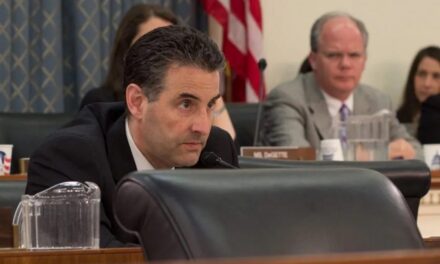This is an opinion column.
A toast to progress.
Here’s to the Alabama Senate, that on Thursday passed – 31 to zip – a bill to give inmates a chance to take part in their parole hearings, if only virtually.
It doesn’t sound like much, but it is.
Here’s to Sen. Will Barfoot, a Republican from Montgomery who sponsored the bill that would, if passed by the House and signed by the governor, allow members of the Alabama Board of Pardons and Paroles to at least look potential parolees in the eye – if only on a Zoom call or its ilk – before sending them back to prison. Or into the world.
It’s only decent.
And here’s to those 31 senators, who came to see that Alabama’s system of paroles is broken, that the rate of paroles granted dropped below 10 percent last year, that the parole board’s refusal to release 9 out of every 10 eligible inmates puts a burden on our prison system and feeds the sense of hopelessness in an environment so dangerous both the Trump and Biden U.S. Justice Departments described as unconstitutional.
Here’s to ‘em. For it’s only right, only fair that parole board members look prospective parolees in the eye before making their decisions. It is honorable to let those inmates have a say, if only for moments and only virtually, before they are denied and sent back to overcrowded prisons.
Here’s to parole board members Darryl Littleton and Gabrelle Simmons – not board chair Leigh Gwathney, the No Queen – as parole rates in the early part of this year doubled that of last year, though they still fall far short of recommendations and standards from previous years. The board over the last few years has granted only a fraction of paroles recommended by its own staff, and the staff makes those recommendations based on the state board’s own guidelines.
Here’s to progress. However small, however tardy. However tenuous.
And here’s hoping – it’s like hoping for a white Christmas in Montgomery – that the Alabama House, which will consider a similar bill by Rep. Chris England, D-Tuscaloosa in the waning days of the session, will feel the same way. Here’s hoping it gets to Gov. Kay Ivey, and she sees it, too.
Read the AL.com series Denied Parole.
A bill like this should not be controversial, or partisan. It does not let anybody out of prison on its own. It does not throw open the doors and put killers or dope dealers on the street.
It simply allows them to be seen and heard on one of the most important days of their lives, on the day their future is decided and their fate handed down.
Right now prisoners are not allowed to attend hearings at all. Those who are lucky have an advocate to speak for them. Two advocates are allowed two minutes each, for a total of four minutes.
If the inmate has a lawyer, that lawyer can speak for another two minutes.
So the argument for freedom lasts, at most, six minutes.
It is a matter of life and death, freedom or captivity, hope or despair. In six minutes. And inmates can only sit in their cells and wonder what will happen.
Barfoot’s SB312, says an inmate “shall be allowed to participate in his or her parole hearing virtually by means of video conference or other similar communications equipment that allows the inmate to see and hear the members of the Parole Board.”
It goes on to say the inmate will not be allowed to hear or interact with victims or their families. If technology fails the hearing will be suspended until the video is restored.
Barfoot, as quoted by AL.com’s Mike Cason, said the virtual appearances will give the parole board a chance to question inmates directly and get more information to make their decision on whether to grant parole.
That’s a small thing, maybe. But this bill would do more than that.
It would make the parole board see inmates as human beings.
That’s a very big thing.











